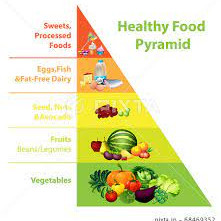“You are not what you eat. You are what your food ate.”

So what did your food eat?
Nature speaks to us through the veggies and leafy greens we eat.
She gives us information about the weather, the amount of rainfall and sunshine, and the state of the earth where they grew.
But even more important, our greens talk to our DNA through microRNAs, molecules that can switch on the genes that create health and silence the genes for breast cancer, heart disease, and Alzheimer’s. MicroRNAs instruct our bodies to repair to tissues and regenerate organs . . . rid ourselves of toxins . . . clear misfolded proteins from the brain that cause dementia.
The fresher your greens, the clearer the message.
So what did your food eat?
Lifeless fruit grown with pesticides and in poor soil sends a mixed message. The fuzzier the signal , the sicker we become.
Did the spinach in your salad find enough magnesium and selenium in the soil in which it was grown? Or was the soil depleted from monoculture, chemical fertilizers, and rain loaded with environmental toxins?
Were the herbs in your omelet organically grown where they received bountiful nutrients from Mother Earth? Or did pesticides and antibiotics make their way into the plants on your plate?
Did the beef you had for dinner last night come from an animal that ate a variety of grasses that grew in a farmer’s field? Or from an animal that consumed highly processed chemical feed from a factory?
Maybe the “food” you had at your last meal is more accurately described as a food-like substance made of highly processed ingredients and chemicals added for taste, texture, appearance, and a long shelf-life.
Pay attention not only to what you eat but also to what your food ate.Plants offer us vitamins, minerals, and other nutrients. However, you want to be sure your digestive system is effectively absorbing them and that they are not simply passing through your GI track . If you’re eating animal proteins, you want to be sure you know what those animals were fed and that they had an opportunity to graze or roam freely.
Remember, chickens are not magical factories that turn GMO corn or garbage into healthful eggs…
Greens that have traces of soil on them provide helpful microbes to your GI tract. Whether from a farmer’s market or you grow them in your yard, organic vegetables and herbs are gifts for your gut. Do not wash them too much as you want to benefit from their soil-based probiotics.
We begin life with a rich microbiome courtesy of our mothers, but as we eat processed foods that are removed from nature and her soil, we begin to lose the variety of microbes living inside us. Amazonian peoples have upwards of 2,000 species of gut bacteria in their gut, in contrast to 10 or 12 in the average obese American. These friendly bacteria not only digest food but manufacture vitamins and neurotransmitters.
Antibiotics, alcohol, and our sugar-heavy diet massacre microbes and feed candida, an invasive yeast that can colonize your gut, displacing beneficial bacteria, and cause all sorts of health problems.
Sadly, the SAD (standard American diet) makes people sick even before they develop symptoms.
Why have so many obese and diabetic people died from Covid-19 infections or developed long-term side effects?
It’s probable that the problem of a gut sparsely populated by beneficial microbes played a role in their health outcomes. Your microbiome is the first line of defense in your immune system. It also is where you manufacture serotonin, the key “feel-good” hormone that stabilizes your mood and creates feelings of wellbeing and happiness. Another is BDNF, short for brain-derived neurotrophic factor. BDNF cues stem cells in the hippocampus, a structure in the brain associated with memory and learning, to repair and grow new neurons. Serotonin produced by your gut flora will repair the hippocampus and increase your odds of avoiding Alzheimer’s disease. Statistics indicate you have a 50% risk of diagnosable Alzheimer’s by the age of 85. We can minimize this risk with a diet rich in Omega-3 fatty acids, such as those found in fatty fish, which help to repair the hippocampus, and supplementing the precursors for serotonin (like 5-HTP and L-Triptophan).
Eat organically and get out into nature, play with the soil so that you end up with some of the earth-based probiotics in your mouth and skin. Or let your dog lick you. You’ll be doing your gut a favor!Cut back on the sugary treats that feed the candida that has overpopulated your gut . One effective way to eliminate candida is with the probiotic S. Boulardii, which you can prepare at home.
